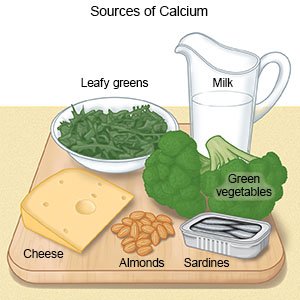Growth Hormone Deficiency in Adults
Medically reviewed by Drugs.com. Last updated on Aug 4, 2025.
AMBULATORY CARE:
Growth hormone deficiency (GHD)
is a condition that prevents your pituitary from making enough growth hormone. The pituitary is a gland in your brain. Growth hormone makes children and adolescents grow taller. Throughout life, it helps increase muscle mass and strengthens bones. Growth hormone also helps the liver and pancreas work correctly and stimulates the immune system.
Call your doctor if:
- You have new or worsening symptoms.
- You have questions or concerns about your condition or care.
Signs and symptoms of GHD:
- Weak bones, fractures, or osteoporosis
- Loss of muscle mass or strength
- Increase in body fat, especially in your abdomen
- Low energy, less sweating than usual, or not being able to exercise for as long as usual
- Trouble concentrating or paying attention, memory problems, or slow thinking
- Depression, anxiety, or not wanting to be social or spend time with others
- Nerve or heart function problems
- Trouble using carbohydrates correctly or more low-density lipoprotein (LDL)
- Problems keeping your body temperature stable
Treatment
depends on the cause of your GHD, and when it started.
- Medicine may be given to treat a brain injury. Medicine called recombinant human growth hormone (rhGH) may be given. You may have received this medicine as a child and continued through puberty. Your healthcare provider may recommend that you continue to receive this medicine if you are a young adult.
- Radiotherapy or surgery may be used to treat a tumor.
- Hormone replacement is given to replace hormones that are low. The hormones may be given as a pill, injection, or skin patch.
Manage GHD:
- Eat healthy foods that are high in calcium and vitamin D. Calcium and vitamin D work together to keep your bones strong. Good sources of calcium are milk, cheese, broccoli, tofu, almonds, and canned salmon and sardines. Vitamin D is in fish oils, some vegetables, and fortified milk, cereal, and bread. Vitamin D is also formed in the skin when it is exposed to the sun. Ask your healthcare provider how much sunlight is safe for you.

- Exercise regularly. Ask your healthcare provider about the best exercise plan for you. Weightbearing exercise for 30 minutes a day on most days of week can help build and strengthen bone. Your healthcare provider may also recommend exercises to build muscle, such as weightlifting. Activities such as Tai chi or yoga can help improve your balance.

Follow up with your doctor or endocrinologist as directed:
You may need to go in every 1 to 2 months if you are receiving rhGH. The dose may be increased at each visit until the final dose is reached. Then you may need to go in every 6 months to check if rhGH is working or if you are having side effects. Your blood fat and sugar levels may be checked every year. You may need x-rays to check your bone density if you continue treatment for longer than 2 years. Write down your questions so you remember to ask them during your visits.
© Copyright Merative 2025 Information is for End User's use only and may not be sold, redistributed or otherwise used for commercial purposes.
The above information is an educational aid only. It is not intended as medical advice for individual conditions or treatments. Talk to your doctor, nurse or pharmacist before following any medical regimen to see if it is safe and effective for you.
Further information
Always consult your healthcare provider to ensure the information displayed on this page applies to your personal circumstances.
